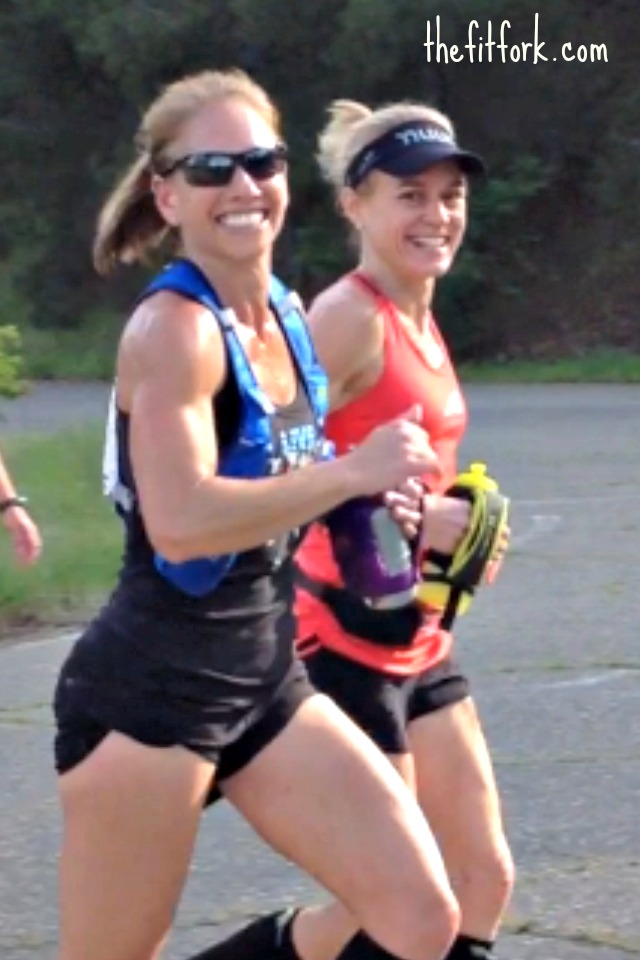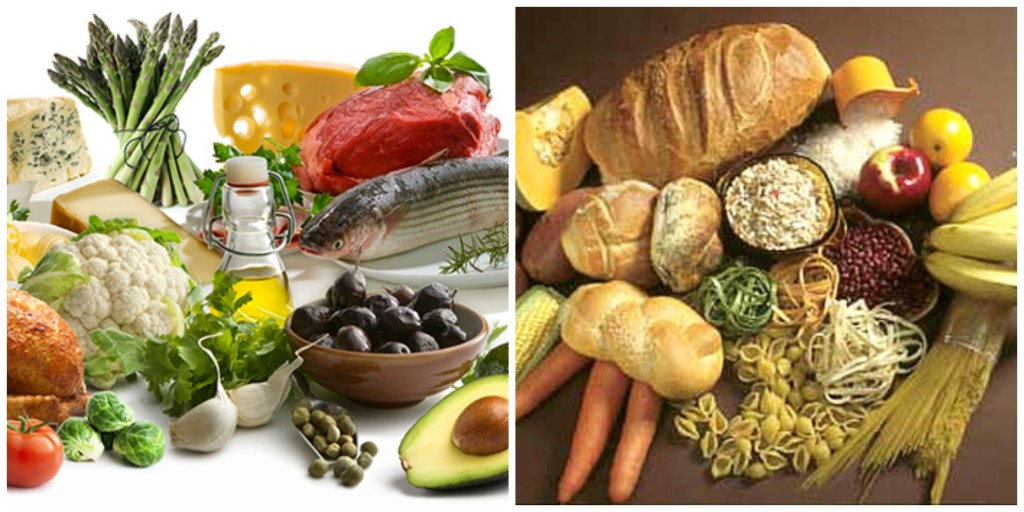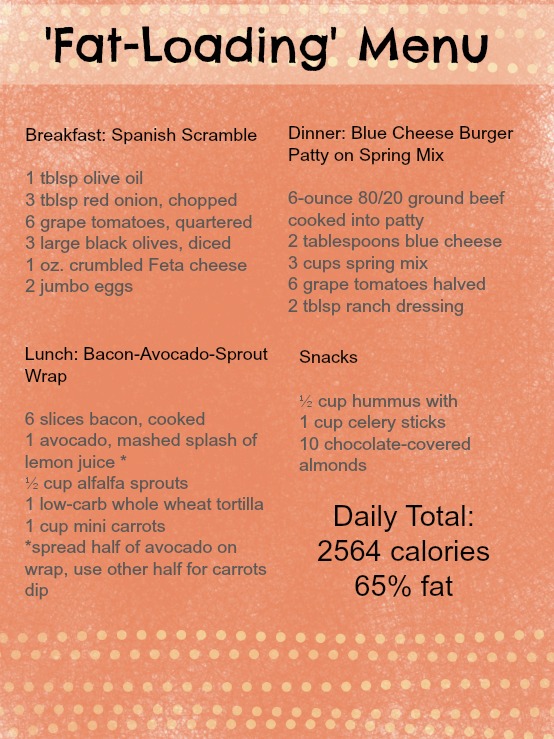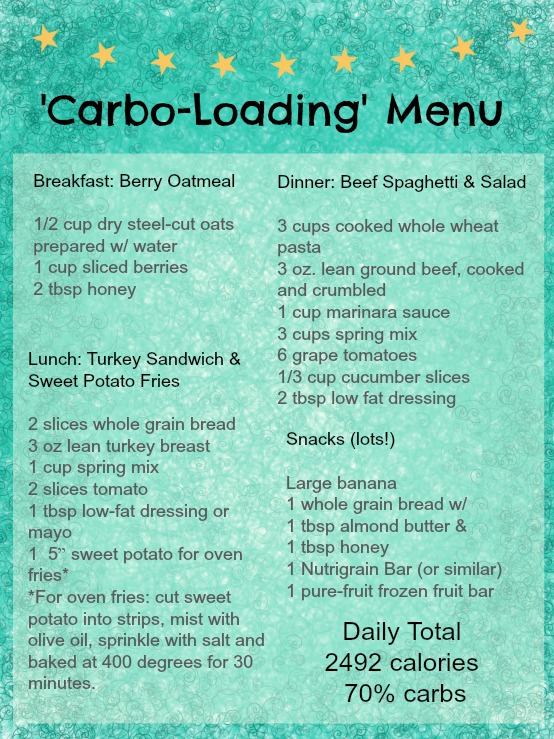Before you binge out on pasta dinners and bagel breakfasts, you might want to take a serious look at what researchers are reporting about “carbo-loading” before a marathon or long endurance event. The days of high-carb diets may be over – well, make that modified — for athletes who want to perform their best on race day, or so says the March 2013 issue of Competitor magazine. New research is suggesting that a low-carb diet may actually have benefits because it trains an athlete’s muscles to be better fat burners.
When muscles can access fat as fuel during a race, glycogen stores are spared and saved for use later down the road – this means “hitting the wall” or “bonking” can be delayed and perhaps even avoided completely. But don’t swear off pancakes just yet. Training day after day on a low-carb diet can leave a runner feeling sluggish and slow because glycogen stores never get topped off. Plus, there hasn’t been any irrefutable, one hundred percent conclusive proof that removing carbs from the diet improves endurance performance. In fact, one study at the University of Birmingham in England found that low-carb runners (41% carbs) reported more fatigue and showed reductions in performance than their high-carb counterparts (65% carbs) during intensive training runs.
A new pre-race nutrition paradigm that combines the two ‘loading’ approaches is being recommended by experts in the sports performance field. Here’s the plan in a nutshell. About two weeks out from an endurance event, aim to get about 65 percent of calories from fats and continue this high-fat intake for 10 days. This “hall pass” to eat fats doesn’t mean you can pig out on pizza and ding-dongs all day, or really any day. Quality fats from healthy oils, nuts, meats, avocados, whole milk, cheese, eggs, and fatty fish are what should be on the table. During this phase, your body will learn how to tap into fat stores for fuel; and, your training won’t suffer much because you’ll be tapering down anyway.
After 10 days of eating low-carb, high-fat foods, switch to a traditional “carbo-load” diet that incorporates 70 percent of calories from carbohydrates for the next three days. This ensures that your glycogen levels are as high as they can be and are raring to go on race day. Stay away from processed carbs and too much sugar. Instead, top off your tank with high-quality, healthy carbs including whole-grain pastas, breads, and rice along with plenty of fruits and veggies (but, of course, cut the fiber intake 24 hours before event).
A study conducted by the University of Cape Town in South Africa implemented this 10-day ‘fat-load’ followed by 3-day ‘carbo-load’ plan on a group of experienced cyclists. After a moderate two-hour warm-up, the athletes were able to complete a 20k time trial 4.5 percent faster following the new diet protocol. What do you think? Is it worth a try?
To recap:
- Day 14 through Day 5 before event: High-Fat, Low-Carb
- Day 4 through Day 2 before event: High-Carb, Low-Fat
- Day 1: Race!
To give you an idea of what a “High Fat, Low Carb” and a “High Carb, Low Fat” days look like, I’ve come up with a sample menu based on an approximate 2,500 calorie diet.





Interesting! I’ve been on the paleo diet now for almost 7 months and am training for a half. It’ll be my first one in almost 3 years, and my first one while doing paleo. I’ve noticed my pace is improved, so far, in training, but we’ll see how it holds up when I get the longer distances!
Thanks for sharing this!
I geek out on new schools of thought like this. So interesting! I’m not a runner anymore, but I know that I see a BIG difference in what I can lift after high carbs days. Really high fats tend to leave me hungrier and a bit fatigued… but I make sure to get a reasonable to add calories to my day.
sharing with my runner peeps!!
This is good to know! I’ll try this out for my next half
Great info!! I’m not running anymore right now, but I’m sharing this with all my running friends!!
I was going to write a post on the new guidelines, too! Great review… I love that you included sample diets. I think I’m always on a high-fat diet with all the avocado, olive oil and nuts I eat daily! But I definitely agree that most runners overdo the carb-loading the entire week which is unnecessary.
I could hug you for this post! I had two really bad marathons in a row this year, and after talking with my kinesiologist about it, we have decided that it’s perhaps exactly this issue…I am running on glycogen and burning right through it. This is my new approach to eating/fueling for long event and I’m so excited to see this post. Thank you!!
I love this post! This is exactly what I do and what I believe. “Marketing” has made us believe that we need to fuel up on Gu’s and protein bars filled with sugar to make it through long runs. Not true! Great post….ps. handy and motivational, as I just signed up for another half yesterday:)
wow very interesting! I just finished doing a whole30/paleo challenge for 30 days and totally DID notice the difference in my running now that I think about it. I just felt better, ran faster, and was less fatigued on runs. I was eating probably more fat than I ever have. Then once the challenge is over and I went back to my usual foods (pasta, cereal as a treat), I’ve noticed my running has suffered a bit.
How would you implement this for every day training? Woudl you cycle it the same amount of days?
Thanks for sharing. I’ve been playing with my diet for a few months, trying to find something that works better then what I have been doing.
Great post! I’m think this might have hand in why I had a great 1/2 last weekend. Eating right. I stared at the picture and can count all the things I ate in the week leading up to my race. Saving this post for when I train for my first marathon. Thank you!
I love me a fat loading day! Ah ha ha! I am a fat-obsessed girl 😉
Pingback: Bean Bytes 33
Pingback: My Marathon Menu - Why I'm Eating Heaping Helpings of Healthy Fats | thefitfork.com
One of swedens best cross country skiiers Björn Ferry has changed to totally cut carbs when competing.
He says it dosent help, but absolutley dosent hurt, the results stay pretty much the same. The differens is that he does feel better during the race, not needing gatorade, powerbars or anything, just wather.
Wow, this is good to know . .. . for me the carbs tend to upset my stomach during a race
Pingback: 25 Things Runners do Wrong